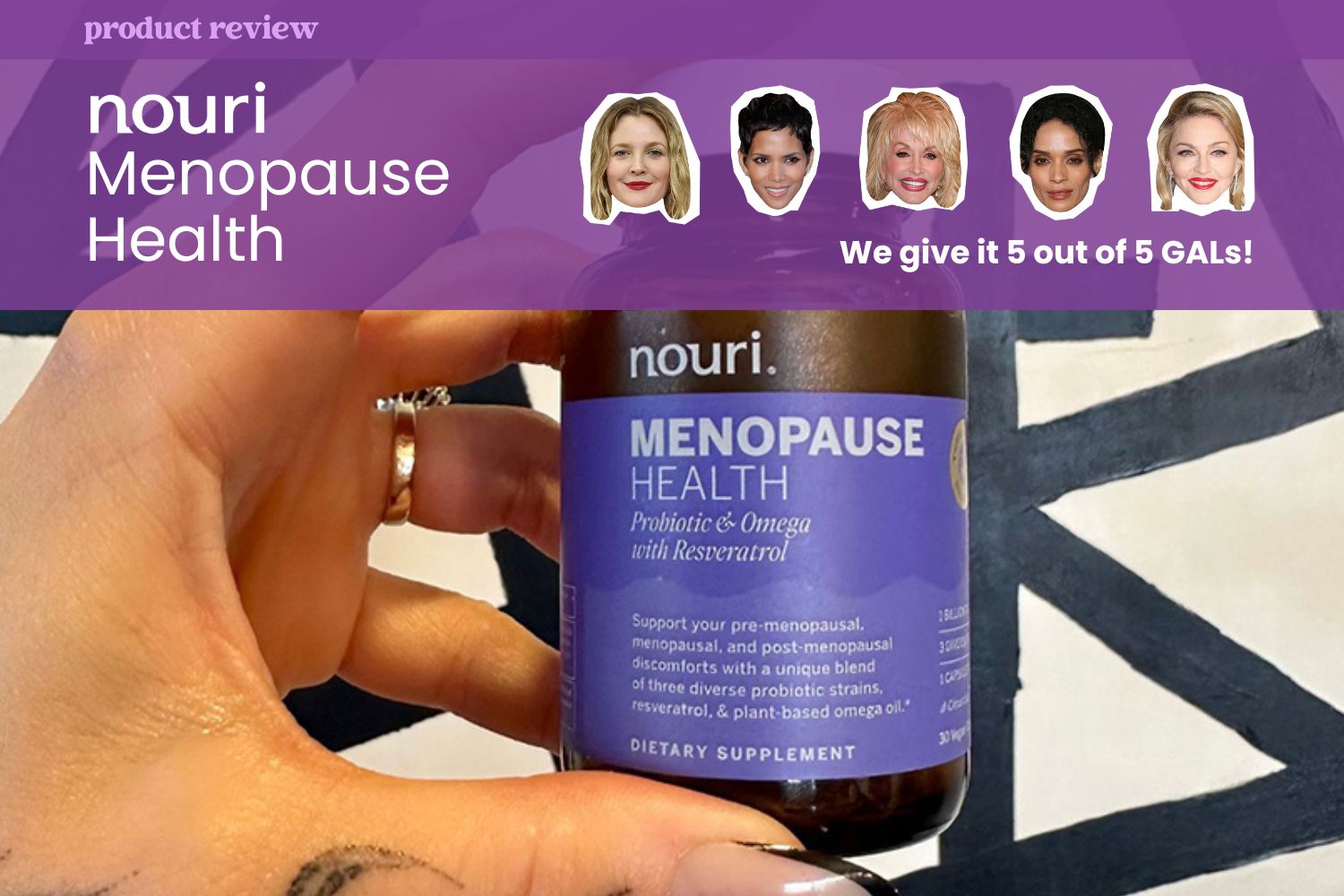
Gratitude: The simple way to improve your health in a complex world
In a world of prescribed mindfulness, the practice of “gratitude” can get lost amongst the rhetoric of self-awareness and fluff of how to live your best life. What does it really mean to exercise gratitude — and more candidly, how does it benefit you?
My mother, a retired oncology nurse, always replied to my tears of complaints with a “yes, but it could be so much worse.” In a seemingly backward way, I was raised to rethink my circumstances in a positive light, albeit as a comparison — or perhaps a reality check.
In my 40s, I actually observed gratitude in practice at Alcoholics Anonymous (AA) meetings. Just like in TV shows that recreate these intimate circles, recovering alcoholics typically end their voluntary group shares with something like “I’m just grateful to be here.” The ritual of being present “one day at a time” and arising from the arrest of addiction to “feel your feelings” (without alcohol to mask pain) often pulls us into a state of self-awareness that can only be addressed with immense gratitude — even if it took rock bottom to get there.
Without a doubt, this glass-half-full approach certainly benefits how we respond to life’s happenings. Still, reacting with gratitude after facing death from cancer or addiction is only one side of the coin. Experts say that a proactive practice of gratitude is really the drug for the good life.
What is gratitude?
We all have a general idea of what gratitude means: We know the feeling and can identify the behavior. We can teach it to our kids, and we can tell when it’s absent. Still, how can we define such an abstract concept?
“Gratitude is an intrinsic component of the human experience,” reports Summer Allen, Ph.D., at UC Berkeley. “It has deep roots that are embedded in our evolutionary history, our brains and DNA, and in child development.” Animals engage in “reciprocal altruism,” religion and parenting emphasize giving thanks, and gratitude can be considered “social glue” for forming relationships.
Psychologists break gratitude down into three categories: a grateful disposition, a mood that can fluctuate, and an emotion after receiving a gift or favor. In short, gratitude can be clinically defined as the appreciation of what is valuable and meaningful to us.

5 ways gratitude benefits your mind and body
Gratitude holds a prominent position in the positive psychology movement. As a compliment to traditional psychology, this practice comprises the scientific study of positive experiences, individual traits, and even institutions that promise to improve our quality of life — and prevent the pathologies that can arise when life feels barren or meaningless.
Many studies continue to demonstrate how the effects of this positive mindset also aid in a holistic approach to our physical health. The top five health benefits of gratitude include lessened anxiety, reduced depression, relieved stress, improved heart health, and improved sleep. If someone promised these benefits in a pill, would you take it? Further detail into each benefit might be your spoonful of sugar:
1. Gratitude lessens anxiety
Women are more than twice as likely as men to develop an anxiety disorder in their lifetime. Most of us know this feeling of worry, nervousness, or fear about an event or situation — yet in our 40s and 50s, anxiety can pay us an unwelcome visit. Changes in our hormone levels during perimenopause and menopause can affect neurotransmitters, while drops in estrogen levels can cause anxiety-inducing situations like hot flashes and poor sleep. (Read The Midst guide to perimenopause to learn more.)
Luckily, anxiety disorders are highly treatable, and gratitude can be a helpful coping tool. Anxious (and depressive) thinking can be considered mental time travel, or rumination, pulling us out of the present to worry about the past or future. By regularly practicing gratitude, you can combat negative thinking patterns and the resulting anxiety by keeping your thoughts focused on the present.
2. Gratitude helps with depression
Depression is about 50% more common among women than men, according to the World Health Organization, which reports a depressed population of 280 million people in the world. We Gen-X GALs can also anticipate changes in our hormones during perimenopause and menopause may impact our mental health, including feelings of depression and anxiety.
Gratitude has a “substantial association” with depression. In general, people with a grateful mindset report higher satisfaction with life, relationships, and self-esteem — which reduces depression symptoms. A specific study of women at risk for depression concluded that those who were grateful better accepted their condition – again, lowering symptoms. Ultimately, researchers believe that a continuous practice of gratitude lessens symptoms of depression, allowing people to realize what they do have.
3. Gratitude reduces stress
Yet another fun fact: Women repeatedly report higher levels of stress than men. It doesn’t take a genius to reveal that many of the stressful household responsibilities fall on us — on top of our already demanding jobs. While such demands often increase with caregiver responsibilities in our 40s and 50s, hormonal and physical changes during menopause can add to the stress and fatigue we’re already feeling.
Moreso, studies reveal that few of us women think we’re doing a good job at stress management. And that makes sense — because who has the time? Luckily, gratitude is an easy way to reduce stress and can be attributed to 23% lower levels of cortisol (the hormone that creates stress in the body). Gratitude can help you to recognize the good things in your life — and to experience the small moments of positive emotions that stress often bullies away.
4. Gratitude improves heart health
Heart disease is the leading cause of death for women in the United States and can affect women at any age. Likewise, during our 40s and 50s, hormonal changes during menopause can bring increased cardiovascular disease (CVD) in the form of higher blood pressure and cholesterol levels. While most CVD in women occurs after menopause, we should note that premature menopause is considered an established risk factor for CVD.
What to do? Most importantly, a healthy lifestyle of exercise, heart-healthy foods, not smoking, maintaining a healthy weight, and reducing stress can help prevent heart disease. Still, studies reveal that a grateful mindset also benefits prevention. In fact, keeping a gratitude journal can cause a significant drop in diastolic blood pressure (the force your heart exerts between beats), along with simply having grateful thoughts, by regulating your breathing to synchronize with your heartbeat.
5. Gratitude provides better sleep
Hormonal shifts during perimenopause and menopause can cause our sleep to go wacky. Progesterone, which helps us fall asleep, and estrogen, which helps us stay asleep, both decrease. Cortisol from stress can wake us up in the middle of the night, not to mention hot flashes and night sweats, that cause our bodies’ natural sleep-wake cycles to go haywire.
Research tells us that gratitude – or these pre-sleep cognitions – can counteract our sleep-trouble woes. The idea is that an attitude of gratitude promotes a chain of positive events before we hit our pillows, like being active, eating healthfully, and reducing stress, anxiety, and depression. (Read 5 tips to get better sleep for more info.)

The write way to practice gratitude
One of the most amazing things about gratitude is that you can practice it anytime, anywhere. Most of us are familiar with practicing gratitude by literally counting our blessings, thanking people regularly, visualizing good intentions, and meditating. (With a dense mindfulness market, I’m not going to dive deeper into these examples and instead focus on one.) Of course, there’s the practice of journaling, too — one of the most popular forms of this practice, and with good reason.
How to keep a gratitude journal
There’s no prescribed way to express gratitude on paper or device. But if you’re looking for benefits like those I researched above, UC Berkeley’s Greater Good in Action provides clear instructions as a way to see results via journaling:
- Journal for 15 minutes per day, at least three times per week for at least two weeks
- Write or type 5 things for which you’re grateful
- Be specific and go into detail
- Try to focus on people, not things
- Include how you avoided negative experiences
- Try to see your list as “gifts” and try to record unexpected surprises
- Write regularly and with variety
UC Berkeley’s research concluded that people who wrote in a gratitude journal weekly for the suggested timeframe experienced more gratitude, positive moods, and optimism about the future, as well as better sleep (compared to those who journaled about hassles or their daily lives).
While this study supplies specific timeframes for measurable results, the intention of starting a practice like gratitude is to keep going. In time, grateful thinking will become a habit that occurs naturally and with substantial reward. So again, I ask you: If someone promised all of these benefits in a pill, would you take it? It’s that simple.




